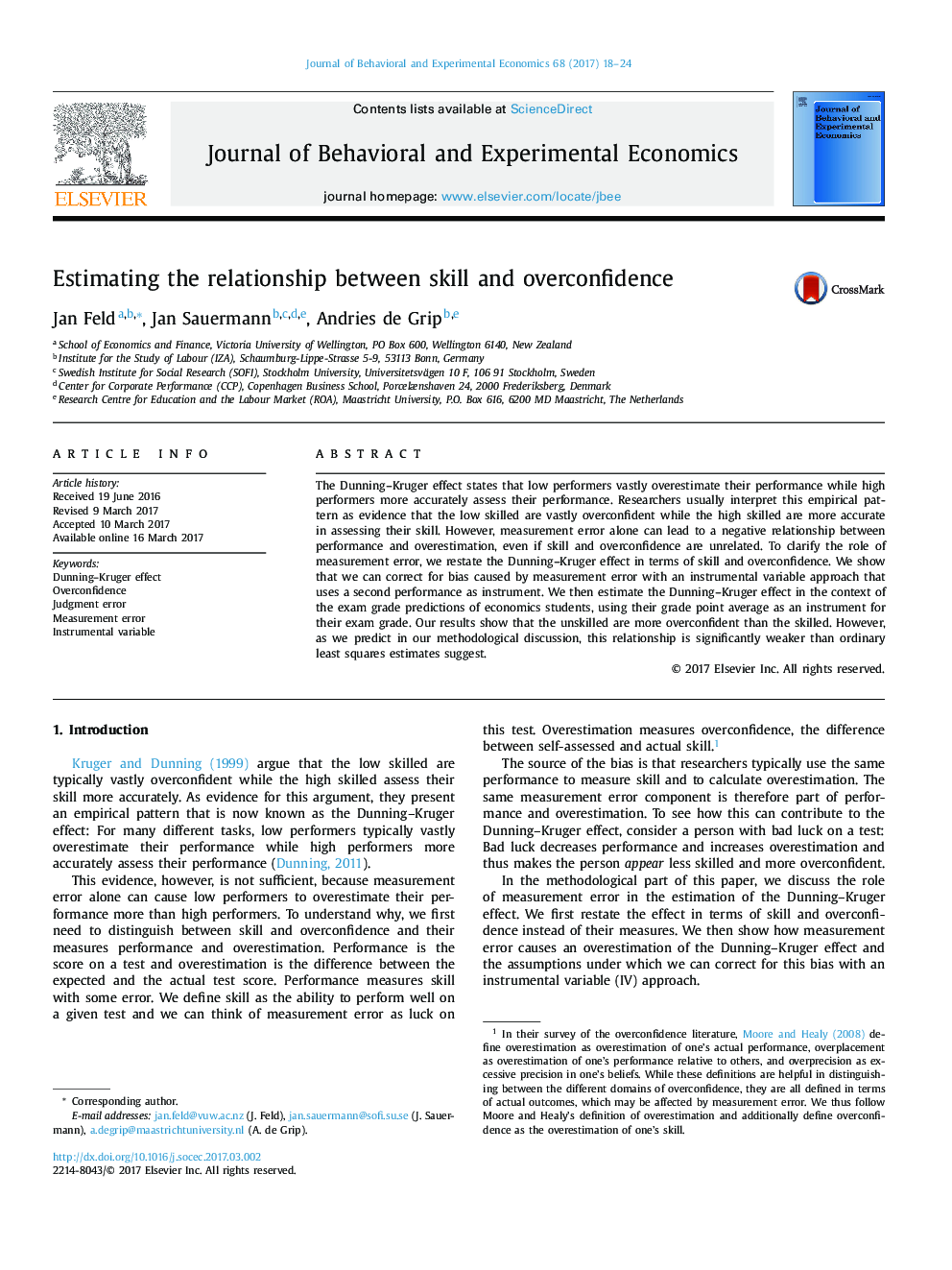| Article ID | Journal | Published Year | Pages | File Type |
|---|---|---|---|---|
| 5034097 | Journal of Behavioral and Experimental Economics | 2017 | 7 Pages |
â¢We estimate the relationship between skill and overconfidence.â¢We show how measurement error complicates this estimation.â¢Low-skilled students are vastly overconfident.â¢High-skilled students are more accurate in assessing their skill.
The Dunning-Kruger effect states that low performers vastly overestimate their performance while high performers more accurately assess their performance. Researchers usually interpret this empirical pattern as evidence that the low skilled are vastly overconfident while the high skilled are more accurate in assessing their skill. However, measurement error alone can lead to a negative relationship between performance and overestimation, even if skill and overconfidence are unrelated. To clarify the role of measurement error, we restate the Dunning-Kruger effect in terms of skill and overconfidence. We show that we can correct for bias caused by measurement error with an instrumental variable approach that uses a second performance as instrument. We then estimate the Dunning-Kruger effect in the context of the exam grade predictions of economics students, using their grade point average as an instrument for their exam grade. Our results show that the unskilled are more overconfident than the skilled. However, as we predict in our methodological discussion, this relationship is significantly weaker than ordinary least squares estimates suggest.
